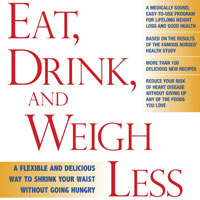Penn Herb Wellness Guide
Roasted Butternut Squash

Ingredients
- 1 Tbs canola oil or safflower oil
- 1 lb butternut squash
- salt (optional)
Directions
- Preheat the oven to 425F. Line a baking sheet with parchment paper or foil, and brush or spread it with some of the oil.
- Peel the squash, then cut it in half. Scrape out and discard the few seeds, and chop the squash into 1-inch cubes.
- Distribute the squash cubes on the prepared baking sheet, and brush the exposed sides with a little extra oil.
- Place the baking sheet on the center rack of the oven, and roast for 10 minutes. Shake the baking sheet and/or use tongs to redistribute the squash so it can roast evenly all over.
- Roast for another 10 minutes, then remove from the oven, and let the squash cool for about 10 minutes on the baking sheet. You can salt it lightly during this time, if you wish.
- Serve hot, warm, or at room temperature.
Nutrition Note: Nutrition Facts calculated using a serving size of 1/2 cup.
Kitchen Tip: Roasted Butternut Squash will keep for up to 5 days in a tightly covered container in the refrigerator, and will respond beautifully to all sorts of sauces, glazes, and salad dressings.
Nutrition Facts
Copyright 2025 TraceGains, Inc. All rights reserved.
Read our healthy recipe definitions.
Learn more about TraceGains, the company.
The information presented here is for informational purposes only and was created by a team of USregistered dietitians and food experts. Consult your doctor, practitioner, and/or pharmacist for any health problem and before using any supplements, making dietary changes, or before making any changes in prescribed medications. Information expires December 2025.


